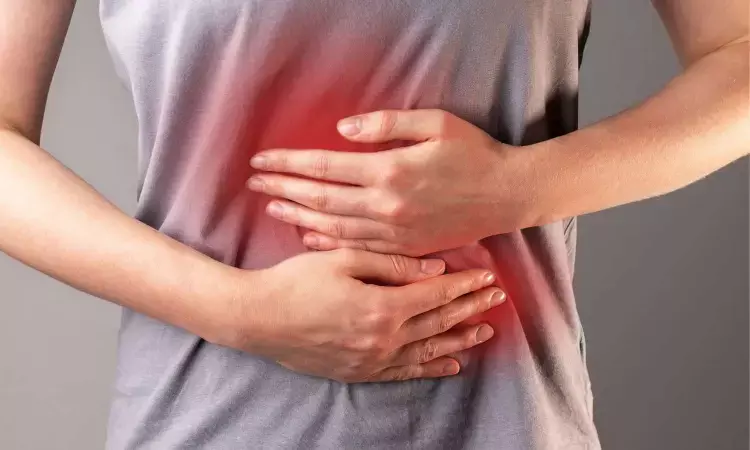- Home
- Medical news & Guidelines
- Anesthesiology
- Cardiology and CTVS
- Critical Care
- Dentistry
- Dermatology
- Diabetes and Endocrinology
- ENT
- Gastroenterology
- Medicine
- Nephrology
- Neurology
- Obstretics-Gynaecology
- Oncology
- Ophthalmology
- Orthopaedics
- Pediatrics-Neonatology
- Psychiatry
- Pulmonology
- Radiology
- Surgery
- Urology
- Laboratory Medicine
- Diet
- Nursing
- Paramedical
- Physiotherapy
- Health news
- Fact Check
- Bone Health Fact Check
- Brain Health Fact Check
- Cancer Related Fact Check
- Child Care Fact Check
- Dental and oral health fact check
- Diabetes and metabolic health fact check
- Diet and Nutrition Fact Check
- Eye and ENT Care Fact Check
- Fitness fact check
- Gut health fact check
- Heart health fact check
- Kidney health fact check
- Medical education fact check
- Men's health fact check
- Respiratory fact check
- Skin and hair care fact check
- Vaccine and Immunization fact check
- Women's health fact check
- AYUSH
- State News
- Andaman and Nicobar Islands
- Andhra Pradesh
- Arunachal Pradesh
- Assam
- Bihar
- Chandigarh
- Chattisgarh
- Dadra and Nagar Haveli
- Daman and Diu
- Delhi
- Goa
- Gujarat
- Haryana
- Himachal Pradesh
- Jammu & Kashmir
- Jharkhand
- Karnataka
- Kerala
- Ladakh
- Lakshadweep
- Madhya Pradesh
- Maharashtra
- Manipur
- Meghalaya
- Mizoram
- Nagaland
- Odisha
- Puducherry
- Punjab
- Rajasthan
- Sikkim
- Tamil Nadu
- Telangana
- Tripura
- Uttar Pradesh
- Uttrakhand
- West Bengal
- Medical Education
- Industry
Vitamin D Deficiency Linked to Heightened Nausea and Gastric Issues in Gastroparesis Patients: Study

USA: More than half of patients with gastroparesis symptoms exhibit low vitamin D levels, which are associated with increased nausea, vomiting, and impaired gastric neuromuscular function, says a recent study published in Digestive Diseases and Sciences.
Gastroparesis (Gp) is a gastrointestinal disorder characterized by delayed gastric emptying and often accompanied by debilitating symptoms such as nausea, vomiting, and bloating. Gp patients have diets deficient in electrolytes, calories, and vitamins. Although some patients with gastroparesis have been reported to have low vitamin D levels, this issue has not been systematically investigated. Considering this, Kenneth L. Koch, Section Of Gastroenterology, Wake Forest University, Winston-Salem, NC, USA, and colleagues aimed to determine vitamin D levels and relationships among symptoms, gastric emptying, and gastric myoelectrical activity (GMA) in patients with symptoms of Gp.
For this purpose, the researchers measured 25-hydroxy-vitamin D levels in patients upon enrollment in the Gastroparesis Clinical Consortium Registry. They also assessed gastroparesis symptoms using the Gastroparesis Cardinal Symptoms Index (GCSI), evaluated gastric emptying, and conducted gastric myoelectric activity tests before and after the water load satiety test (WLST). GMA was recorded using electrogastrography, with activity percentages categorized into normal and dysrhythmic ranges.
The study revealed the following findings:
- Vitamin D levels were low (< 30 ng/ml) in 56.1% of patients with symptoms of Gp (54.8% of patients with delayed gastric emptying (Gp) and 59.9% of patients with symptoms of Gp and normal gastric emptying).
- Low vitamin D levels were associated with increased nausea and vomiting but not fullness or bloating subscores.
- Low vitamin D levels in patients with Gp were associated with greater meal retention at four hours (36% retention) compared with Gp patients with normal vitamin D levels (31% retention).
- Low vitamin D in patients with normal gastric emptying was associated with decreased normal 3 cpm GMA before and increased tachygastria after WLST.
"This study establishes a foundation for further research into vitamin D supplementation in patients with gastroparesis who exhibit low vitamin D levels. Future investigations should explore whether replenishing vitamin D can improve gastric neuromuscular function and alleviate gastroparesis symptoms. In the interim, we recommend evaluating vitamin D levels in patients with gastroparesis and administering vitamin D supplements if a deficiency is found." the researchers concluded.
Reference:
Koch, K.L., Parkman, H.P., Yates, K.P. et al. Low Vitamin D Levels in Patients with Symptoms of Gastroparesis: Relationships with Nausea and Vomiting, Gastric Emptying and Gastric Myoelectrical Activity. Dig Dis Sci (2024). https://doi.org/10.1007/s10620-024-08520-8
Dr Kamal Kant Kohli-MBBS, DTCD- a chest specialist with more than 30 years of practice and a flair for writing clinical articles, Dr Kamal Kant Kohli joined Medical Dialogues as a Chief Editor of Medical News. Besides writing articles, as an editor, he proofreads and verifies all the medical content published on Medical Dialogues including those coming from journals, studies,medical conferences,guidelines etc. Email: drkohli@medicaldialogues.in. Contact no. 011-43720751


